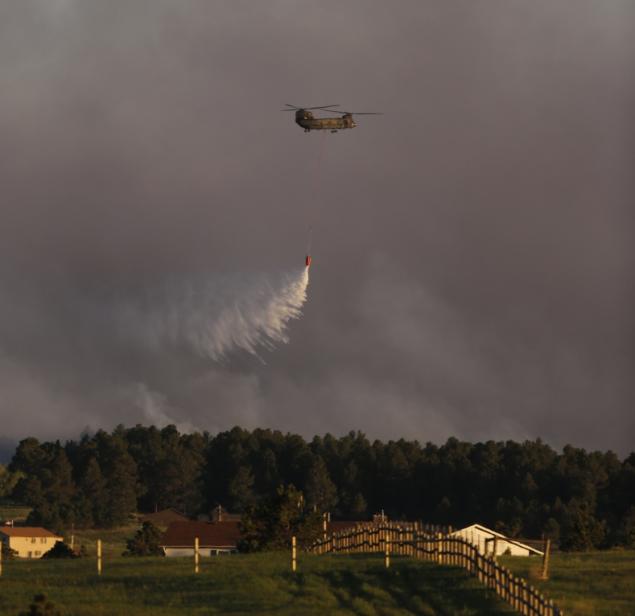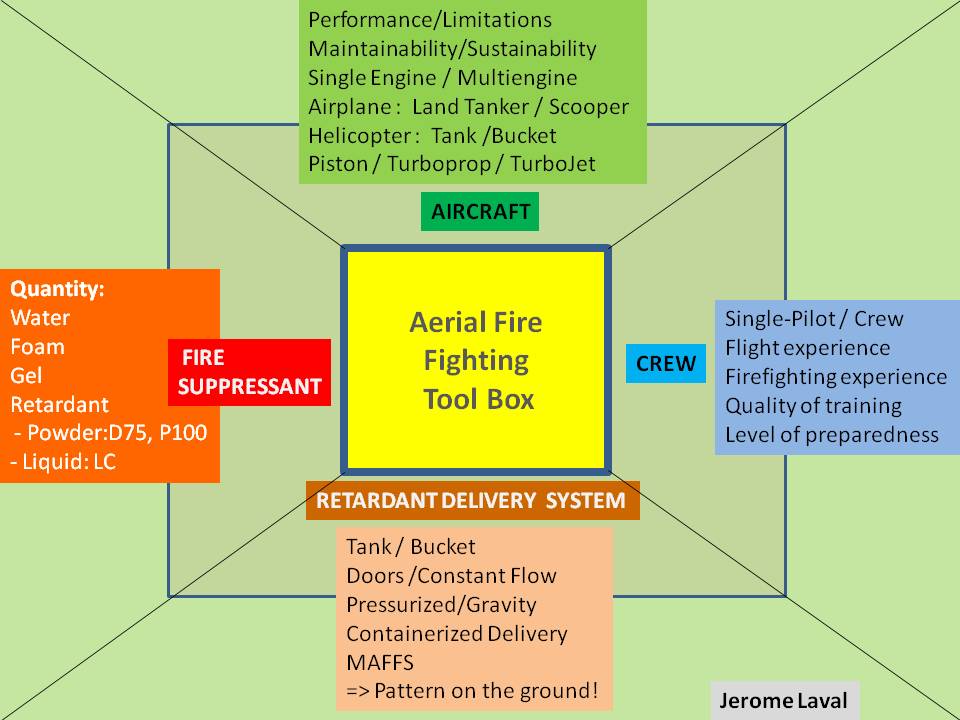As we see another tragic tale develop in Colorado where homes in beautiful landscapes are destroyed by wildfire, it makes you wonder if emergency agencies and fire prone communities have actually learned anything over the years about how to tackle wildfires early and effectively. As I sit in my office in a wintry day in Adelaide South Australia it is easy to be an “armchair critic”, but let’s look at what is happening.
- Bad fire weather is predicted, lightning forecast
- Buildings are built in high forest hazard country with shingle/shake roofs, no setbacks established, no planning and development control in these fire prone areas
- Only small number of aircraft available locally, there is a high reliance on Federal resources for back up
- High fire danger with multiple fires across a number of States and there are not enough Federal resources to go around
- An emergency is occurring so there is a need to call in back up federally
- So the cavalry arrives after the initial damage is done (Black Forest fire they are saying up to 100 structures lost) to do some indirect attack as the policy for Federal airtankers is they can only use long term
- Then call in military resources that have limited experience in fighting fires and use things like Black Hawks and Chinooks with water only with limited effect
- Then the Federal, State and County Governments use a huge amount of their budget being fairly ineffective with a defensive action but every one complements the aircraft as saving the day when in reality it will be the actions of the weather and ground firefighters that will really make the difference.
The political outfall is already happening with local Colorado politicians asking why there was a bill passed for a local aircraft fleet, yet it remains not funded and put into action, and then there will be developing community outrage why nothing was done earlier. What’s more the fleet strategy is developed from the current large air tanker model rather than a cost effective fleet of diverse aircraft types matched to the fire risk.
Haven’t we heard this all before across the world? Do we actually learn and progress or do we wait until another major emergency and wait for multiple deaths before we create a better and integrated strategy to prevent damage and losses, and have response that minimizes the damage to community areas earlier? It may sound a bit savage but this is a the current formula for paradigm change in government for emergencies I have seen over my last 30 years in the fire services.
- Have a disaster
- Cover your backside as you may get kicked
- Have a review and recommend actions
- Don’t fund the actions fully but have few “sexy” solutions like a big aircraft or helicopter
- No significant emergency happens for a few years so you can afford to wind back the funding
- The community forgets what has happened in the past and ignores the actions of a few people withing government that remain concerned about the problem
- Have another disaster and let’s go through the process again…
What do you think?
NOTE: Jerome Laval’s “Tool Box” template added here by Walt Darran (unable to add to comments below):













I think Initial attack is the only efficient strategy.
Requirements;
– Quqlified, experienced flight crews
– Sufficient, well maintained number of assets (tool box concept ; from Seats to Lats and Vlats.. from Copters with buckets to Helitankers) dropping adequate fire suppressant/Retardant
– Tactical spread of Tanker Bases to cover efficiently the entire territory
– Top notch Dispatch system to manage the fleet effectively
You are so right Jerome? When you see this lightweight news story when they talk about how much fun it is to see helicopters working at the Black Forest fire rather than assess from a community safety perspective whether they have made a difference.
http://www.krdo.com/news/helicopter-drops-delight-spectators/-/417220/20579730/-/r5t8ve/-/index.html
Strong points by David and Jerome.
One thing unusual about both those guys is that they actually listen, learn, then take the effort to pass the word.
I’ve taken the liberty of adding Jerome’s compilation of ideas from a lot of folks in the business to formulate an integrated “Tool Box” template, The Full Monty if you will. Considerate it carefully; one weak side can invalidate the whole concept.
But even an optimum platform and crew cannot be fully effective without an effective tactical spread, full support from the back office, and timely and appropriate dispatching.